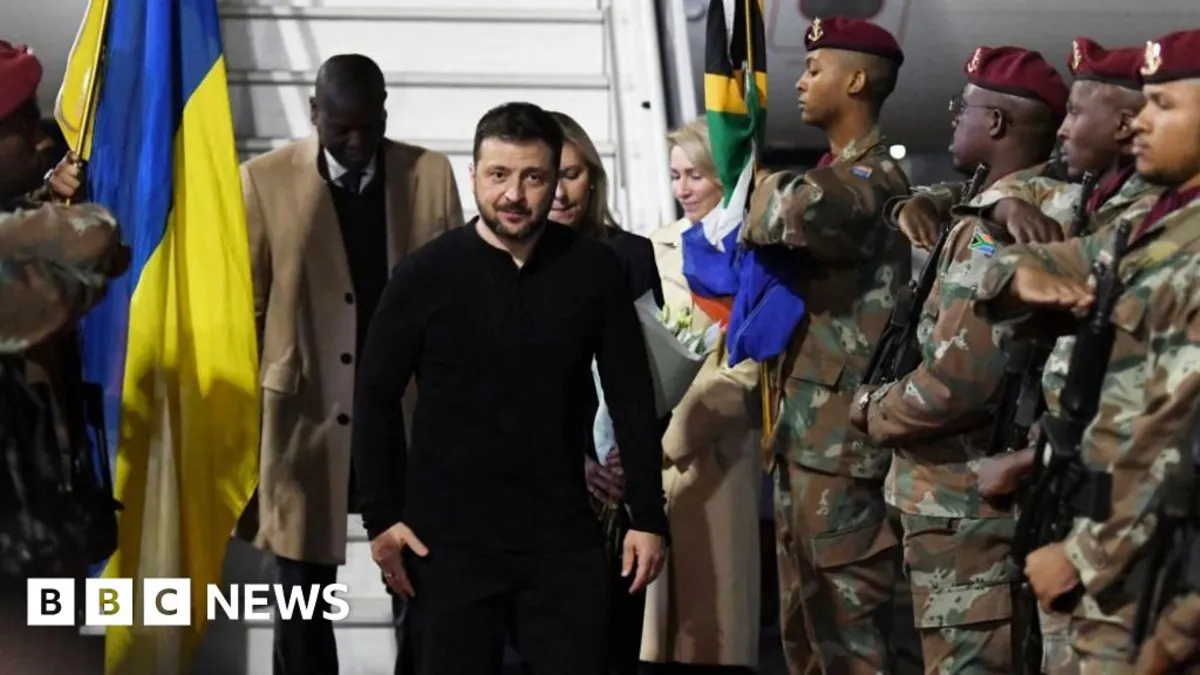
Ukrainian President Volodymyr Zelensky has made the difficult decision to cancel a portion of his inaugural visit to South Africa following a devastating overnight missile and drone attack by Russia on Kyiv. This assault resulted in the tragic loss of at least nine lives and left over 80 individuals injured, including children, according to local officials. In light of this, Zelensky announced via a post on X that he would return to Ukraine immediately after meeting with South African President Cyril Ramaphosa.
During this critical visit, which is part of Zelensky’s broader diplomatic efforts, he emphasized the ongoing rescue operations in Kyiv, highlighting the significant destruction caused by the attack. He noted that it has now been 44 days since Ukraine agreed to a full ceasefire, which was part of an earlier arrangement between the United States and Ukraine in March aimed at establishing a temporary ceasefire. Zelensky firmly stated that the strikes must cease immediately and unconditionally.
Zelensky's visit to South Africa represents a significant diplomatic breakthrough for the Ukrainian leader, particularly in his mission to counter Russia's expanding influence across the African continent. This state visit would have seemed improbable just two years ago when President Ramaphosa led a delegation of African leaders to Kyiv in a self-proclaimed peace mission. At that time, South Africa's hesitance to condemn Russia’s invasion of Ukraine was a significant point of frustration for the Ukrainian government.
However, the geopolitical landscape has shifted dramatically since that meeting, with both countries now finding themselves increasingly at odds with Washington. The U.S. has historically been one of Ukraine’s closest allies, especially before the re-election of Donald Trump in November. In light of recent developments, Ukraine is eager to expand its network of international partners, particularly in Africa, where many nations maintain strong ties with Russia.
South Africa has also experienced deteriorating relations with Washington, which has resulted in the expulsion of its ambassador and the withdrawal of aid funding. South African officials assert that their non-aligned stance positions them uniquely to facilitate a peace agreement with Russia. Recently, Trump expressed dissatisfaction with Zelensky, accusing him of undermining peace negotiations after the Ukrainian leader stated that Kyiv would not acknowledge Russian control over Crimea.
Crimea, a southern peninsula that was illegally annexed by Russia in 2014, remains a pivotal point of contention for Ukraine. Zelensky has consistently maintained that Ukraine will not relinquish its claim to Crimea. Trump claimed that a deal to end the conflict was imminent, but asserted that Zelensky's refusal to accept U.S. conditions would only prolong the war.
Earlier, U.S. Vice President JD Vance outlined the administration's vision for a potential peace deal, suggesting it would involve freezing the current territorial lines close to their existing positions. He indicated that both Ukraine and Russia would need to concede some territory, although he did not specify what geographic compromises would be necessary.
When questioned at the White House about the possibility of recognizing Russia's sovereignty over Crimea, Trump stated that his primary objective was to see an end to the war. However, recognizing Russia’s illegal occupation of Crimea would not only be politically unfeasible for Zelensky but also contrary to the international legal norms established post-war, which dictate that borders should not be altered through force.